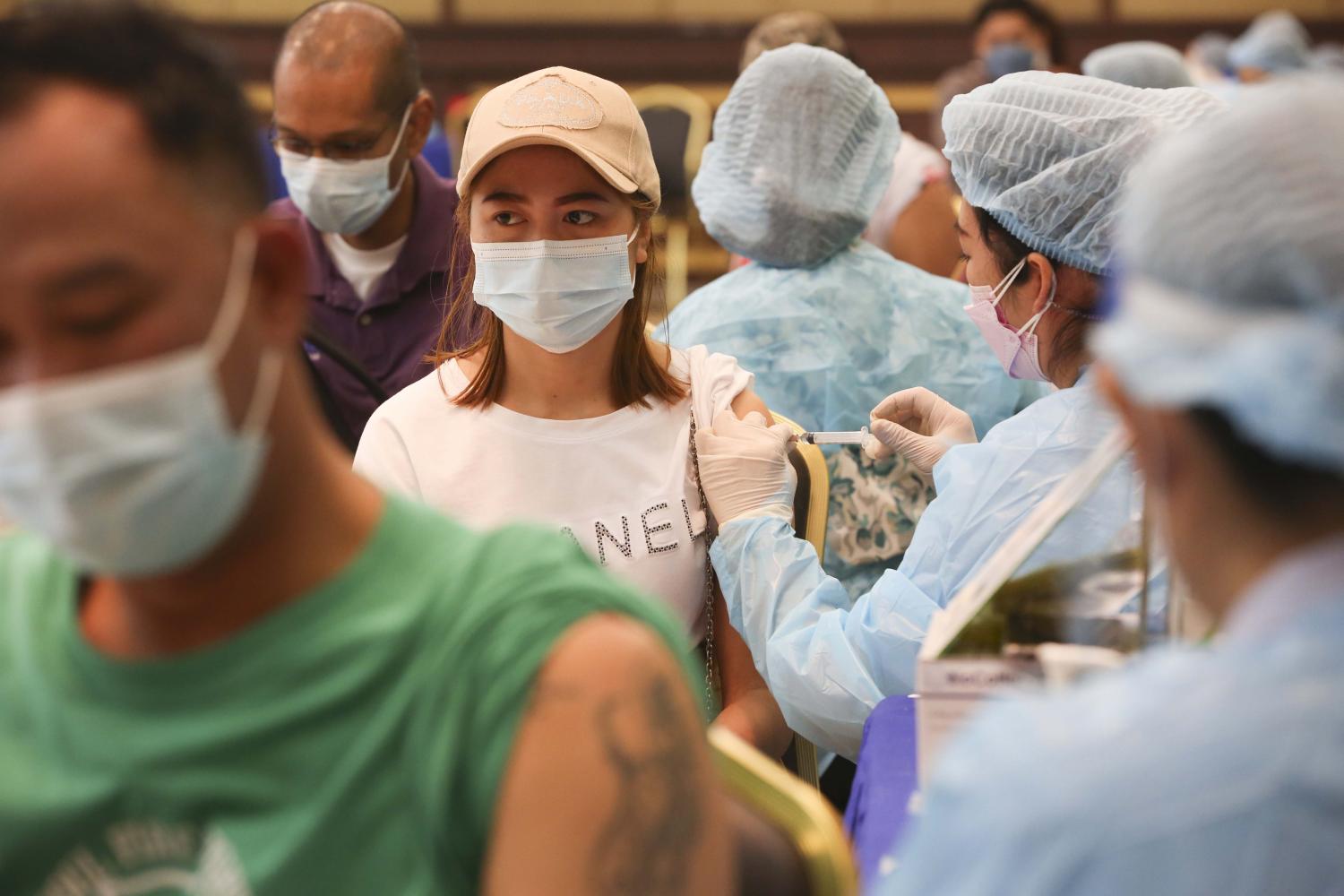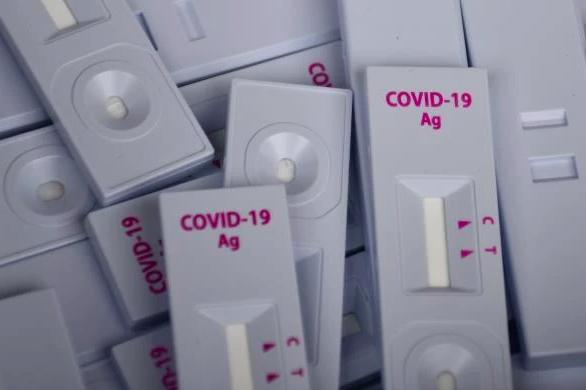
Amidst the tumult of the pandemic, both insurers and the insured face an enormous challenge to navigate and manage health risks.
According to the Office of the Insurance Commission (OIC), accumulated claims from Covid insurance in the first seven months this year spiked to 3.9 billion baht, aggravated by a surge of claims worth 1.95 billion in July as infections rose nationwide.
Thai General Insurance Association president Anon Vangvasu estimated accumulated Covid-19 claims could double to 7.5-8 billion baht as of August, and eventually surpass 10 billion in value this year.
Pichet Jiaramaneetaweesin, managing director of Actuarial Business Solutions, said insurance companies will continue to suffer losses from surges of claims from lump-sum payment Covid-19 insurance policies until December.
The pandemic is likely to last until April next year, based on Thailand's current vaccination rate, he said.
"Health insurance products that offer coverage for medical expenses, especially for Covid, remain essential for people who want to manage risks and seek resources that will help them afford necessary health care expenses," Mr Pichet said.
Even though the government announced it will partially cover medical costs for Covid-19 patients admitted to hospitals, in practice private hospitals usually require a patient to submit a security deposit, which has been reported to reach up to a million baht in order to guarantee the patient can pay the bills.
He said Covid medical expenses paid by the government for inpatient treatment at private hospitals are based on state hospital pricing, which is considerably lower than their private counterparts, driving private hospitals to ask for the security deposit.

INVESTING IN HEALTH
"The concept of insurance is similar to stock futures or gold futures, with those prices calculated from statistics, historical prices and variances such as accidents, morbidity and mortality rates. A recent addition would be the incidence rate of Covid-19," said Mr Pichet.
"However, the purposes of these products differ as insurance is an instrument to manage risk and maintain stability, while investment derivatives are mainly for wealth creation."
He said people should allocate some of their assets for insurance products to protect and provide relief during unexpected events that can disrupt their lives or hinder their families from achieving their life goals.
According to Mr Pichet, the importance of insurance is enhanced during a pandemic because of uncertainty as people want financial support to sustain their living standards.
The coverage provided from insurance products is calculated to be adequate for buyers to maintain their quality of life if a negative event happens, he said.
For people interested in buying insurance during the pandemic, Mr Pichet recommends mixing health insurance with Covid-19 insurance to maximise protection while reducing total premiums.
He recommended buying health insurance products with a deductible clause as it allows policyholders to claim medical expenses for various illnesses. The only disadvantage of the product is a deductible clause that requires buyers to first cover a specified initial amount for each loss and injury before receiving reimbursement from an insurer, said Mr Pichet.
"With such a plan, buyers can first cover the expenses from the deductible product with a lump-sum payment received from Covid insurance," he said.
Mr Pichet bought this type of insurance for his family to ensure they will receive proper healthcare if someone becomes infected.
This type of plan also anticipates costly medical expenses for Covid treatment, which can reach millions of baht in the case of lung infections.
From an actuarial viewpoint, buyers who require daily compensation during treatment are recommended to buy insurance products with the daily compensation not exceeding 20% of the daily average wage or salary, he said.
In addition, the principal protection of life insurance should be maintained at around 24-36 months and not exceed 60 months of monthly income, said Mr Pichet. Otherwise, buyers will be over-insured and unnecessarily waste their money on expensive premiums.
Over-insurance may also cause policyholders to live their lives more recklessly, he said.

People receive Covid-19 vaccine jabs in Nonthaburi province. Pattarapong Chatpattarasill
PREPARING FOR CLAIMS
Since the pandemic intensified the past few months, the OIC modified two Covid insurance conditions to ease the burden on buyers.
From July, patients in home and community isolation programmes have been allowed to claim reimbursements from insurance companies, while patients diagnosed using a Covid RT-PCR test can use the test result instead of a medical certificate to file a claim.
Arpakorn Panlerd, assistant secretary-general at the OIC, suggested people who bought Covid-19 insurance and suspect they have the disease or registered a positive antigen test result go to any hospital or lab immediately to take a RT-PCR test for verification.
"There are many cases where the pre-screening antigen test kit showed a positive result, but the RT-PCR test did not," he said.
"Moreover, results from an antigen test kit cannot be used to verify personal identity and thus are unqualified as proof of a claim."
If results from a pre-screening test kit and RT-PCR test match, patients are diagnosed by doctors to determine the severity of the infection.
For example, if the symptoms are mild, patients are categorised as "green" and can either receive treatment at hospitals and hospitels, or receive remote healthcare under a home isolation scheme in which medical treatment is usually provided via telemedicine, said Mr Arpakorn.
However, patients in home isolation programmes are subject to a different claim process and criteria, he said.

Antigen kits for detecting Covid-19 infections in patients. Bangkok Post
Claiming reimbursements for inpatient treatment is usually easy as any medical expense during treatment will be certified by the doctor who oversees it, said Mr Arpakorn.
However, patients in a home isolation scheme must keep track of all medical expenses and bills as proof by themselves from the first day they are registered as a Covid-19 patient.
He said all expenses must be related to the treatment process to be eligible for a claim.
Daily compensation is only available to patients in the "yellow" stage with severe symptoms, or those aged 60 or older and diagnosed with seven critical illnesses including cancer, diabetes, sleep apnea or obesity, said Mr Arpakorn.
Under an OIC mandate, insurance companies are required to pay for the actual number of days hospitalised for inpatients, and up to 14 days of daily compensation for patients in home isolation programmes.
Patients in both cases can claim reimbursement up to the amount specified in the policy terms.
"Traditionally, patients who are eligible for daily compensation are only inpatients with symptoms or conditions deemed severe enough to prompt hospitalisation," he said.
"However, as 'yellow patients' require close medical supervision, the coverage is extended to this group as well."
To claim for expenses, any proof or pieces of evidence must be submitted within 30 days from the date of discharge from either hospitals and home isolation programmes, said Mr Arpakorn.

Mr Pichet says the importance of insurance is further enhanced amid the pandemic as people are in extreme turmoil and uncertainty, and need financial supports to sustain their living standards.

Medical services are offered at a private hospital in Bangkok. Wichan Charoenkiatpakul